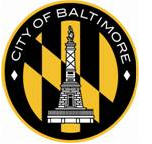Mayor Scott to Implement Cutting-Edge 9-1-1 Diversion Pilot Program by Early June
Friday May 7th, 2021

FOR IMMEDIATE RELEASE
BALTIMORE, MD (Friday, May 7, 2021) — Joined by clinical partners and behavioral health specialists, Mayor Brandon M. Scott announced the details of a clinical-governmental partnership that will begin diverting appropriate calls for service away from police response. This program will make Baltimore a national leader, one of only a handful of cities working to divert some 9-1-1 calls to behavioral health specialists and community partners.
The Baltimore City 9-1-1 call diversion program will begin by diverting two call types and will leverage existing expertise in local community-based organizations. The pilot program will be implemented in partnership with Behavioral Health System Baltimore (BHSB) and Baltimore Crisis Response, Inc. (BCRI).
“Approximately 13,000 calls come into our 9-1-1 system each year for people in crisis. Baltimore is home to world-class medical institutions, and we have an opportunity to deliver premier clinical care and supportive services to residents experiencing behavioral health and substance use crises,” said Mayor Brandon M. Scott. “The citywide pilot my administration will launch this summer will allow our police officers to spend more time focusing on violence. I look forward to deepening this work and growing our public health diversion options over time, in partnership with community-based organizations.”
Baltimore residents will be able to access the program by simply calling 9-1-1. If the call is identified as appropriate for referral, the 9-1-1 specialist will connect the caller to a trained mental health clinician at the Here2Help line, operated by BCRI — rather than routing the call to BPD or emergency medical services (EMS). Residents can also call the free, confidential Here2Help line directly at 410-433-5175, available 24-hours a day.
The program is aligned with the federal consent decree, which requires burden reduction on BPD over time through diverting appropriate behavioral health calls to other services and partners.
The program is slated to launch in early June 2021 and will divert two behavioral health call types to start — “non-suicidal and alert” (psychiatric/abnormal behavior/suicide) and “suicidal and alert” (psychiatric/abnormal behavior/suicide). These two categories alone account for an estimated 1,000 calls received by 9-1-1 operators annually.
An internal working group, including data fellows and the Baltimore City Fire Department’s medical director, will provide daily quality assurance. Additionally, the Collaborative Planning and Implementation Committee (CPIC) will assist in evaluating the program’s outcomes and make recommendations for how the City can adapt and grow its public health diversion options over time. The CPIC is composed of people and organizations representing a wide range of disciplines and perspectives who work to improve encounters between law enforcement and people with behavioral health disorders.
This 9-1-1 call diversion pilot program will make Baltimore City a national leader. Cities including Oakland, California and Eugene, Oregon have embarked on similar efforts to begin diverting appropriate behavioral health calls to trained clinical specialists.
U.S. Senator Chris Van Hollen joined the Mayor for the announcement. This 911 call diversion program is similar to legislation Senator Van Hollen is advocating for nationally.
“To improve public safety, we must ensure those experiencing behavioral health and substance use crisis situations get the help they need. Not every emergency call requires a police response. Mayor Scott’s new pilot program will ensure Baltimore residents are connected with the appropriate resources in emergency and non-emergency situations — and will allow our police to focus their efforts where they’re actually needed,” said U.S. Senator Chris Van Hollen. “I’m proud to partner with the Mayor on this front, as I work in Congress to increase funding for state and local governments across the country to create programs just like this, and I look forward to reintroducing my legislation with Representative Karen Bass on this issue soon. I’m glad to see Baltimore leading the way as an example for cities around the nation.”
In March 2021, Mayor Scott committed to implementing a 9-1-1 call diversion pilot program during his State of the City address as a way to “ensure that we are sending the most appropriate resources when our neighbors call for assistance.”